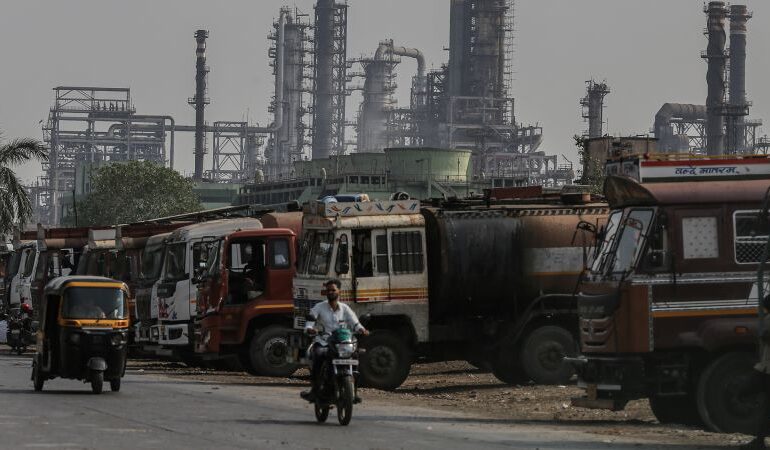Trump Plans Major Tariff Increase on Indian Goods Over Oil Trade

President Donald Trump announced on March 18, 2024, that he plans to “substantially” increase tariffs on goods imported from India. This decision stems from India’s continued purchase of oil from Russia, despite ongoing geopolitical tensions and sanctions imposed by the United States and its allies.
In a post on his social media platform, Truth Social, Trump expressed frustration, stating, “India is not only buying massive amounts of Russian oil, they are then, for much of the oil purchased, selling it on the open market for big profits.” He emphasized that as a consequence, the tariffs imposed on India would see a significant hike, though he did not specify the exact new rates.
India’s response to Trump’s tariff threat was immediate and forthright. Officials from the Indian Ministry of External Affairs asserted that the country is being unfairly singled out by the United States and the European Union for its oil imports. They explained that India’s decision to import oil from Russia was made necessary due to the diversion of traditional supplies to Europe following the onset of the conflict in Ukraine.
Context of Tariff Increase
Currently, goods imported from India face a minimum tariff rate of 10%. Trump’s proposed increase could reach a minimum of 25%, reflecting a substantial shift in trade relations. Such tariffs are typically paid by importers but can also adversely affect exporting countries by reducing demand for their products, potentially leading to shifts in purchasing patterns and increased domestic production.
The Indian government defended its oil imports, stating that they are essential for ensuring “predictable and affordable energy costs to the Indian consumer.” In a statement, spokesperson Randhir Jaiswal noted that India’s imports are a response to the current global market situation, emphasizing that the country will prioritize its national interests and economic security.
India has also pointed out that both the United States and the European Union engage in trade with Russia, arguing that the targeting of India is “unjustified and unreasonable.” The Indian government maintains that it will take all necessary measures to protect its economic stability.
Broader Implications
Trump’s tariff announcement comes amidst heightened pressure on Vladimir Putin to secure a ceasefire in Ukraine. The former president has shortened his previous deadline for negotiations, indicating a more aggressive stance in international diplomacy.
As this situation develops, the implications for international trade relationships remain significant. The potential for increased tariffs could not only strain U.S.-India relations but also reshape the global oil market as countries reassess their trade strategies in light of ongoing geopolitical conflicts.
The unfolding scenario highlights the complex interplay between national policies and global economic dynamics, with both immediate and long-term consequences for countries involved in the trade of essential commodities.






